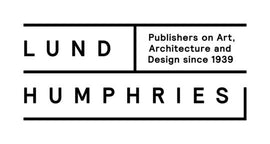SYMPOSIUM – THE CATALOGUE RAISONNÉ IN THE 21ST CENTURY

A symposium hosted by Lund Humphries and Artifex Press
in association with Chelsea College of Arts
On Friday 18th November, 2016, Lund Humphries and Artifex Press co-hosted a one-day international symposium on the importance, challenges and practicalities of compiling a catalogue raisonné, including the new publishing options afforded by digital technology. The event provided fascinating insight into the catalogue raisonné process from international experts with experience of a wide range of projects and on works in various different media.
Video documentation of each symposium session will be archived below. Speaker biographies are available here.
Welcome & Introduction
Welcome from Lucy Myers, Managing Director of Lund Humphries
Welcome from the symposium chair, Dr Nicholas Tromans
Session 1 – CREATING A CATALOGUE RAISONNÉ
What exactly is a catalogue raisonné and why bother compiling one? An art historian and an art-market expert give their view of the importance of the catalogue raisonné to an artist’s legacy.
Dr David Anfam, author of Mark Rothko: The Works on Canvas – A Catalogue Raisonné
James Rawlin, independent advisor and curator, formerly Head of Modern and Post-war British Art at Sotheby’s
Followed by:
Past meets present: the catalogue raisonné and the challenges presented by the contemporary artist’s studio.
Mark Waugh, Head of Innovation and Research, DACS
Session 2 – GETTING STARTED
How do you go about setting up a catalogue raisonné project and what do you need to consider in the crucial early stages of such a task?
Panel discussion led by Dr Nicholas Tromans, followed by questions from the floor
Susan Cooke, Director of Programming, The Catalogue Raisonné Scholars Association, and Associate Director of David Smith Sculptures: A Catalogue Raisonné
Dr Lee Beard, editor, Ben Nicholson: Paintings and Carved Reliefs Catalogue Raisonné
Sarah Whitfield, editor, William Scott Catalogue Raisonné, co-author of the René Magritte Catalogue Raisonné and member of the Scott, Magritte, Arshile Gorky and Francis Bacon authentication committees
Session 3 – COLLABORATIONS
How as a researcher do you manage a relationship with a living artist or living collaborators? What kinds of challenges, both practical and ethical, do such collaborative projects bring?
Panel discussion led by Dr Jo Melvin (Chelsea College of Arts), followed by questions from the floor
Lindsay Aveilhé, editor, Sol LeWitt: Wall Drawings Catalogue Raisonné
Dr Dietmar Elger, Director of the Gerhard Richter Archive at the Staatliche Kunstsammlungen Dresden, and editor, Gerhard Richter Catalogue Raisonné
Followed by:
Catalogues Raisonnés – Avoiding and resolving disputes on stolen and fake items
Julian Radcliffe, Chairman of The Art Loss Register (supporting partner)
Session 4 – THE CATALOGUE RAISONNÉ PROCESS
What exactly does a catalogue raisonné consist of? Exploring research techniques and the challenges of the process.
Panel discussion led by Susan Cooke, followed by questions from the floor
Lindsay Aveilhé, editor, Sol LeWitt: Wall Drawings Catalogue Raisonné
Dr Lee Beard, editor, Ben Nicholson: Paintings and Carved Reliefs Catalogue Raisonné
Dr Dietmar Elger, Director of the Gerhard Richter Archive at the Staatliche Kunstsammlungen Dresden, and editor, Gerhard Richter Catalogue Raisonné
Session 5 – AUTHENTICATION
How and when to authenticate: the principles and practicalities involved in authentication and establishing an authentication/advisory committee.
Panel discussion led by Dr Nicholas Tromans, followed by questions from the floor
Karen Sanig, Head of Art Law, Mishcon de Reya
Robert Upstone, editor, Christopher Wood Paintings Catalogue Raisonné
Sarah Whitfield, editor, William Scott Catalogue Raisonné, co-author of the René Magritte Catalogue Raisonné and member of the Scott, Magritte, Arshile Gorky and Francis Bacon authentication committees
Session 6 – PUBLISHING OPTIONS
What are the relative advantages and limitations of print/digital and how suitable is each for cataloguing different types of work? At what point should you start conversations with a publisher and how, and what can you expect from the relationship?
Two publishers give their perspectives, followed by questions from the floor led by Dr Nicholas Tromans
David Grosz, President of Artifex Press
Lucy Myers, Managing Director, Lund Humphries
Followed by:
Closing address by Dr Nicholas Tromans
Final words from David Grosz, President of Artifex Press

